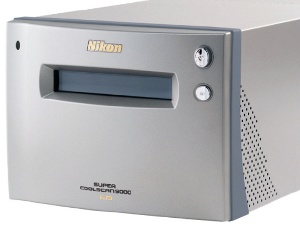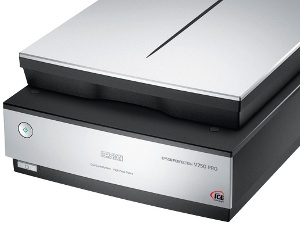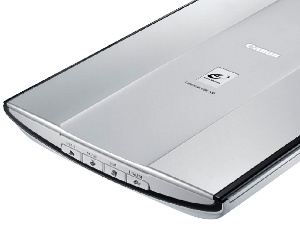Best Way to Scan Old Scrapbooks
Scanning the future
Now that most photography is digital, it can be difficult to justify spending money on an optical scanner. But, although the technology is becoming dated, it's not dead yet, and there are professional and creative benefits to being able to turn prints, slides and paper directly into images.
Firstly, many agencies still have slide stock. Most of it will have been scanned for you, so when you order an image it's more likely you'll download it from a website than wait for a courier to deliver a transparency. But for some projects, photographers may still prefer to shoot with film - certain looks are very difficult to recreate digitally - and if you can do your scanning in-house you'll be saving fees and also gaining extra control over image output quality.
Secondly, some source materials are still only available on paper. Old photos, old slides, press and newspaper cuttings, vintage ads - you won't find most of them online. There's a whole pre-digital world of photography and design that has only ever been available on paper, and the only way to access it digitally is by scanning it optically.
Finally, scanners can be an outstanding and original tool for creative work. Unlike a camera, they're ideal for getting close up to the detail of textures, objects and materials. If your project needs a simulated background, an original custom texture or some quirky close-ups of paperclips, coffee rings, fabrics or even solid objects, a scanner is the easiest way to get an image straight into Photoshop without the copying, conversion, filing and light management needed with a digital camera.
The good news is that, due to the relative lack of interest, scanner prices have crashed. Extremely expensive units still dominate the high end, where they're used to digitise slide and print collections. But lower down you can get good scanning for less than £100, and professional film scanning for around £500. All high-end scanners support slide scanning, but most budget scanners don't - or they don't do it very well. Check also for the connection technology. USB is the standard now, a few older designs use Firewire, and very occasionally you'll find a model that still uses SCSI - which is going to be incompatible with modern hardware.
The other key feature is software support. Most scanners include some form of noise, dust and scratch reduction. Supplied freebies are fine for basic touch-ups, but realistically you'll still need to spend some time removing more obvious defects by hand. A better option is a high-end product such as LaserSoft's SilverFast ai, which can create extremely high-quality multi-pass scans. A cheaper alternative for budget scanners is Vuescan from hamrick.com. You may also find a bundled OCR (optical character recognition) tool, which is useful for converting scanned text into editable documents.
Take it digital
Three scanners to look at, whatever your budget

Nikon Super Coolscan 9000 ED
Price: Around £2500
A big box at an unashamedly high-end price, the Nikon 9000 ED is aimed at photographic libraries and professionals. It's also optimised for film and transparency scanning, with limited dimensions. But it can produce top-quality scans for all of the major film formats, including automated frame clipping and separation.
URL: http://imaging.nikon.com

Epson Perfection V750
Price: Around £599
The V750's performance can approach that of the Nikon, if you don't mind fiddling around with plastic frame holders and height risers. It's not small, but the bundled software suite is comprehensive and the flatbed design can handle documents easily. The V700, is cheaper and similar, but lacks the V750's special glass coating.
URL: www.epson.co.uk

Canon CanoScan LiDE 210
Price: Around £60
This is a good budget choice. Colours won't be completely accurate, but it's ideal for document scanning - there's an instant PDF option - and it can also pair up with a printer to work as a copier. At around 15 seconds for an A4 scan, it's also fast.
URL: www.canon.co.uk
Related articles
Best Way to Scan Old Scrapbooks
Source: https://www.creativebloq.com/computer-arts/scanning-future-11108743
0 Response to "Best Way to Scan Old Scrapbooks"
Post a Comment